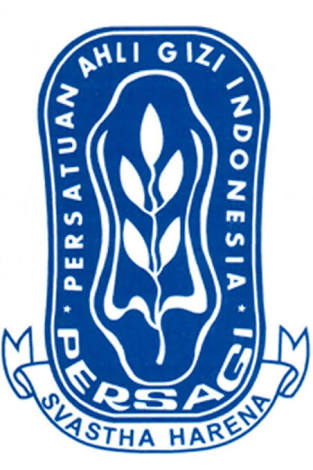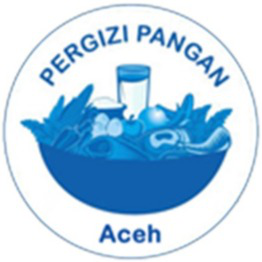Depression and Compliance of Fe Tablet Consumption are Combined Risk Factors for Pregnant Women Constipation at Public Health Center Pedurenan, Tangerang City
Abstract
Constipation marked by feces hard one, dry, and difficult issued. About 73.9% pregnant women experience constipation. Increase in the hormone progesterone for pregnant women resulted in drop motility gastrointestinal tract. Constipation affects psychology and causes swelling of the rectum area.To determine the relationship between the level of fiber adequacy, to consumption of Fe tablets and depression and to see the combined risk factors for depression and adherence to consumption of Fe tablets with the incidence of constipation in pregnant women. Design this research is observational analytics with Cross Sectional design. The sample of pregnant women is 55 people with purposive sampling data collection technique. Taking data done with use questionnaire. Statistic test used the chi-square test. 58.2% of pregnant women experienced constipation; 92.7% insufficient fiber sufficiency level; 40.0% adhered to consuming Fe tablets; 55.4% experienced depression; 23.6% of depression was adherent. The results of the chi-square test showed that there was no significant relationship between the level of fiber adequacy and the incidence of constipation in pregnant women (p = 0.298) and a significant relationship with the incidence of constipation in pregnant women, namely consuming Fe tablets (p = 0.039; OR = 4.080), depression (p = 0.026; OR = 4.125), risk factors for the combination of depression and adherence to consumption of Fe tablets (p = 0.005).Compliance with Fe tablet consumption and depression can increase the risk of constipation in pregnant women by 4,080 times and 4,125 times.
Full Text:
PDFReferences
Syamsudin. Farmakoterapi Gangguan Saluran Pencernaan. Jakarta: Buku Kedokteran EGC; 2013.
Siki, D.A.N. Asuhan keperawatan konstipasi dengan pendekatan 3s (sdki, slki dan siki). 2020;(June).
Ferdinande K, Dorreman Y, Roelens K, Ceelen W, De Looze D. Anorectal symptoms during pregnancy and postpartum: a prospective cohort study. Color Dis. 2018;
Shi W, Xu X, Zhang Y, Guo S, Wang J, Wang J. Epidemiology and risk factors of functional constipation in pregnant women. PLoS One. 2015;10(7):1–10.
Wulan, C., Fitria, W.A. Hubungan Mengkonsumsi Tablet Fe dengan Kejadian Konstipasi Pada Ibu Hamil di Desa Bandar Kecamatan Bandar Kabupaten Pacitan. J Delima Harapan. 2018;
Rahayu D, Ummah F, Juanita F. Hubungan Pola Makan Ibu Hamil dengan Kejadian Konstipasi di BPS Aida Hartatik Desa Ndalanggu Kecamatan Deket Kabupaten Lamongan. Surya. 2010;
Kartikasari R indah, Payana SH dwi. Pregnancy Exercises Dengan Kejadian Konstipasi Pada Ibu Hamil Trimester Ii. Surya. 2017;09(01):54–60.
Cheng C, Chan AOO, Hui WM, Lam SK. Coping strategies, illness perception, anxiety and depression of patients with idiopathic constipation: A population-based study. Aliment Pharmacol Ther. 2003;
Drossman DA DD. Rome III: New standard for functional gastrointestinal disorders. J Gastrointestin Liver Dis. 2006;3:237–41.
Gibson RS. Principles Of Nutritional Assessment. United States of America: Oxford University Press; 2005.
Cox JL, Holden JM, Sagovsky R. Detection of Postnatal Depression: Development of the 10-item Edinburgh Postnatal Depression scale. Br J Psychiatry. 1987;
Bongga, D.C., Ordenes MAC. Factors Influencing Compliance With Iron Supplementation Among Pregnant Women. Soc Sci Diliman. 2006;3:1-2:84-107: Mexico City.
Nur Safira Anandita. Irritable Bowel Syndrome. Med J Lampung Univ. 2015;4:2.
Irianto K. Gizi Seimbang dalam Kesehatan Reproduksi. Bandung: Alfabeta; 2014.
Fan, W., Kang, J., Xiao, X., Li, L., Yang X. Causes of constipation during pregnancy and health management. Int J Clin Exp Med 2020;13(3)2022-2026. 2020;/ISSN:1940.
Hayati S. Pengaruh Konsumsi Tablet Fe dengan Kejadian Konstipasi Pada Ibu Hamil di Puskesmas Payung Sekaki Pekanbaru. J Med Usada. 2020;3:1, Febru.
Muthiah H. Perkembangan Ibu Hamil dari Konsepsi Sampai Melahirkan. Bandung: Makrifat Media Utama; 2011.
Tjay, T. H dan Kirana R. Obat-Obat Penting. Jakarta: Pt Elex Media Komputindo.; 2003.
Sulistyawati A. Asuhan Kebidanan Pada Masa Kehamilan. Jakarta: Salemba Medika; 2009.
Arisman. Buku Ajar Ilmu Gizi: Gizi Dalam Daur Kehidupan. Jakarta: EGC; 2010.
Anisa N. Pravelensi dan Faktor Risiko Klinik Al-Syifa Kota Palembang Tahun 2018. Journal of Chemical Information and Modeling. 2016.
Hestiantoro A, Baidah PA. The Prevalence and Risk Factors of Constipation in Pregnancy. Indones J Obstet Gynecol. 2018;84.
Kemenkes RI. Permenkes Nomor 75 Tahun 2013 tentang Angka Kecukupan Gizi yang Dianjurkan Bagi Bangsa Indonesia. Kementerian Kesehatan Republik Indonesia. 2013.
D. Angkasa, K.Palupi LS et al. Program Kerja U GO GREAT (Vol.1) [Internet]. Perpustakaan Universitas Esa Unggul. 2020. Available from: http://diglib.esaunggul.ac.id/program-kerja-u-go-great-program-studi-s1-ilmu-gizi-17032.html
DOI: https://doi.org/10.35308/jns.v2i2.2676
Refbacks
- There are currently no refbacks.
Managed by Department of Nutrition, Faculty of Public Health
Published by Universitas Teuku Umar ,
Website: http://jurnal.utu.ac.id/JNS/index
Email: jns@utu.ac.id
Phone/Fax: +62-852-7736-5563; E-mail:
This work is licensed under a Creative Commons Attribution-ShareAlike 4.0 International License.














